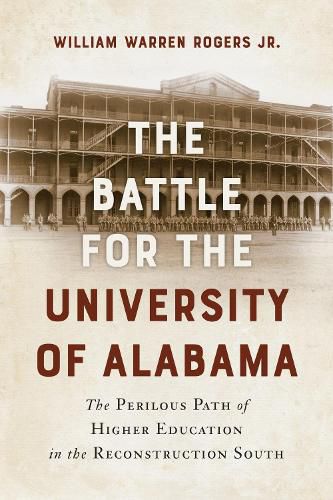Readings Newsletter
Become a Readings Member to make your shopping experience even easier.
Sign in or sign up for free!
You’re not far away from qualifying for FREE standard shipping within Australia
You’ve qualified for FREE standard shipping within Australia
The cart is loading…






The University of Alabama was burned to the ground in the final days of the Civil War. In the war's aftermath, survivors constructed a new collection of buildings using many of the bricks left from the original campus. Nevertheless, the university's presidency changed frequently, Alabama had a new egalitarian constitution created by a racially diverse coalition of Republicans, the fate of the University of Alabama soon became a key battleground in the contested nature of state. In The Battle for the University of Alabama, historian William Warren Rogers, Jr. traces this incredible yet little-known story of the bitter contest for the fate of a cultural citadel in relation to the histories of other public universities in the former states of the Confederacy as they struggled to make their own way after the war.
$9.00 standard shipping within Australia
FREE standard shipping within Australia for orders over $100.00
Express & International shipping calculated at checkout
The University of Alabama was burned to the ground in the final days of the Civil War. In the war's aftermath, survivors constructed a new collection of buildings using many of the bricks left from the original campus. Nevertheless, the university's presidency changed frequently, Alabama had a new egalitarian constitution created by a racially diverse coalition of Republicans, the fate of the University of Alabama soon became a key battleground in the contested nature of state. In The Battle for the University of Alabama, historian William Warren Rogers, Jr. traces this incredible yet little-known story of the bitter contest for the fate of a cultural citadel in relation to the histories of other public universities in the former states of the Confederacy as they struggled to make their own way after the war.